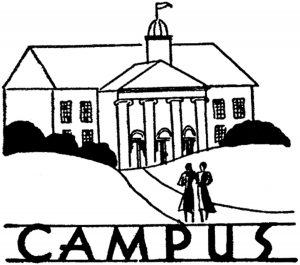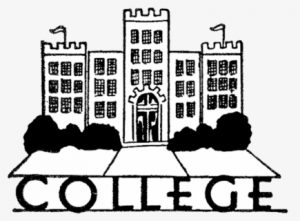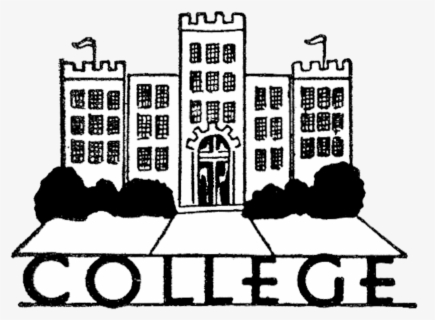 There are several courses that students should take in high school, if they plan to major in engineering in college. These include math (calculus if possible), science (chemistry, biology and physics), computer programming and any engineering classes that may be offered at your high school. Engineering Colleges look for applicants to have a strong STEM (Science, Technology, Engineering and Math) background. Taking Advanced Placement classes in these areas can provide the student with a foundation on courses that will be required as an engineering major. It can also enable the student to get some required courses out of the way before they actually start college. In addition, some engineering curriculums assume that the student will have taken calculus before they start college, and start their curriculum with the next level. It is a good idea to be aware of this before considering a college.
There are several courses that students should take in high school, if they plan to major in engineering in college. These include math (calculus if possible), science (chemistry, biology and physics), computer programming and any engineering classes that may be offered at your high school. Engineering Colleges look for applicants to have a strong STEM (Science, Technology, Engineering and Math) background. Taking Advanced Placement classes in these areas can provide the student with a foundation on courses that will be required as an engineering major. It can also enable the student to get some required courses out of the way before they actually start college. In addition, some engineering curriculums assume that the student will have taken calculus before they start college, and start their curriculum with the next level. It is a good idea to be aware of this before considering a college.
How To Look For An Engineering College
So you decide you want study engineering in college. Now what? Can you go to any school to major in engineering? There are several steps you should take to look for an engineering college.
What Kind of Engineer?
First you need to determine what kind of engineer you would like to become. There are many different fields of engineering such as mechanical, civil, aerospace or computer engineering. It is a good idea to first find out a bit about each field to determine where your interests and strengths fit best.
What Colleges Have My Major?
Next you need to look for schools that offer programs in that engineering major. Not all colleges offer engineering programs. In addition, not every college that has an engineering school offers degrees in every field of engineering. It is important to find out if the school offers the exact engineering major you are interested in so you are not wasting your time. Majors are listed on each college's website. Another good resource for this is US News List of Best Engineering Colleges.
How To Narrow It Down
After finding schools that have your major you should then consider the size of school you are interested in and the geographic location you would like to be in. This will help narrow down your choices. Virtual or actual tours of colleges can help you decide what size and location is best for you.
Grades and Scores
High school grades and standardized test scores play a big role in choosing a college. College websites will list the average scores they require for admission. Researching this will help you determine which schools you have the best shot of getting into, before you apply.
Tuition
An additional factor in choosing a college is cost. Individual college websites will list the tuition and other charges to attend that school. Loans, financial aid and scholarships are offered at most schools to help you pay for it. Unfortunately, you won't know if you qualify for them until after you apply to each school. Therefore, it is important to understand what you can afford before you apply.
 In short, the search for an engineering school is not simple. Looking for a college for engineering takes some thought and research, but the end result will be the perfect college for you.
In short, the search for an engineering school is not simple. Looking for a college for engineering takes some thought and research, but the end result will be the perfect college for you.
THE ENGINEERING COLLEGE SEARCH IN 2021
Searching for a college for engineering in 2021 is not the same as it was in years past. Many schools are not open for tours or visits. This is frustrating for juniors exploring which schools might be good for them to apply to, as well as current seniors trying to decide which school to attend.
So What Can You Do?
Start checking out college websites. There is a lot of information and resources available online.
Virtual Tours
Most schools offer virtual tours of their schools. These range from videos to interactive maps to programs that provide a 360 degree view of areas on the campus. There are often videos of the area where the campus is located to allow potential students to get a better feel of the environment.
Information Sessions
Many schools also offer information sessions with administrators, faculty and even current students. These sessions can be live zoom sessions or prerecorded videos. The live sessions require advanced registration and range from large talks over zoom with an interactive chat for questions to smaller sessions where participants are encouraged to interact using their camera and audio. There are often general info sessions about the college as well as sessions for specific majors, such as engineering.
Videos
Many college websites provide prerecorded videos of students describing their experiences at that school. These are great resources to find out more about what it is like to go to school there. There may also be videos detailing different majors. In addition, there could be videos of the area where the campus is located to allow potential students to get a better feel for the location.
Trial Classes
Many schools offer trial classes for students currently accepted to a college. It is a great way to experience what a class feels like on a campus. This is a fantastic way to help an accepted student's decision process.
Campus Visit
Some colleges are currently starting to allow campus visits. It is best to contact each school you are interested in to see if an in person visit is possible. They usually will require an appointment as these typically are limited to very small groups and are not always offered. It is also sometimes possible to do a self guided tour of the outside of a campus and the surrounding area at schools not offering tours.
Calls and Emails
Contacting the department you are looking to major in is a great way to find more details about their curriculum. In addition, contacting the campus recruiter for your area is another good way to get information about a college.
The End Result
Online resources such as virtual tours, information sessions and  videos can help students and their parents learn a lot about different colleges. In addition, some colleges are starting to offer limited on site tours or you can decide to do a self guided visit to the campus and surrounding area. Exploring colleges in 2021 can still be done, it just takes a bit more effort.
videos can help students and their parents learn a lot about different colleges. In addition, some colleges are starting to offer limited on site tours or you can decide to do a self guided visit to the campus and surrounding area. Exploring colleges in 2021 can still be done, it just takes a bit more effort.
What Is A Structural Engineer?
Structural engineers design, evaluate and calculate the strength, stability, and rigidity of structures. Structural engineering is a specialty within the field of civil engineering. It is a structural engineer's job to make sure a structure is safe and will be able to handle the forces and loads it may encounter. Structural engineers work with architects, contractors and other engineering professionals.
What Do Structural Engineers Do?
Structural engineers design and analyze structures such as buildings, bridges, tunnels and oil rigs. They test designs for accuracy and performance with computer programs and models. Structural engineers also develop construction budgets, evaluate materials, monitor construction and make sure projects are meeting the appropriate codes and regulations. In addition, structural engineers evaluate existing structures for structural integrity and recommend repairs or changes.
A structural engineer may be involved with new or existing residential buildings, commercial projects, home purchase inspections, storm damage, and additional structural needs.
Where Do Structural Engineers Work?
 Most structural engineers work for construction or engineering consulting firms or for contractors. Consultants focus on designing structures and tend to work in an office environment. Contractors spend the majority of their time on site where they oversee the construction of a structure.
Most structural engineers work for construction or engineering consulting firms or for contractors. Consultants focus on designing structures and tend to work in an office environment. Contractors spend the majority of their time on site where they oversee the construction of a structure.
Structural engineers usually specialize in a particular industry, such as buildings or bridges. This allows them to be familiar with the challenges and requirements specific to their area of expertise.
How To Become A Structural Engineer
To do this job, you will need a bachelors degree in structural or civil engineering. The college should be accredited by ABET. A PE Certification and a masters degree may be required for advanced positions in the field.
What is a Co-op?
Cooperative education or Co-op is a college program that balances classroom education with hands on learning. Co-ops are traditionally full time paid positions that are counted as part of a college curriculum. The position is held for a long duration of time, usually 3-6 months depending on the program. Students typically don't take classes during their co-op period. This is so students can focus on their work experience. Co-ops are part of the curriculum of many college engineering programs.
Co-op or Internship
Not all colleges offer co-ops. Co-ops are not to be confused with internships. Internships are work experiences that are much shorter in duration and are not always paid. They are more flexible than co-ops as they require fewer hours and can be completed over the summer or while a student is in classes.
How Co-ops Work
Colleges with co-op programs usually require the student to complete at  least two practical learning experiences. A co-op program can lengthen the time a student is in school. This is because there are semesters where they will be working full time and not attending classes. As a result, many university co-op programs are designed to be completed over 5 years.
least two practical learning experiences. A co-op program can lengthen the time a student is in school. This is because there are semesters where they will be working full time and not attending classes. As a result, many university co-op programs are designed to be completed over 5 years.
Engineering Co-ops
There are many colleges with engineering curriculums that incorporate co-ops. Northeastern University, Drexel University and University of Pittsburgh are just a few of the colleges that offer co-op programs in engineering. Overall, co-ops are a great way to explore a field and gain practical experience by working.
How To Search For College During COVID
COVID 19 has made the the college search much more difficult. For the most part, it is not possible to do in person college visits, tours or information sessions. So how can you make an informed decision when choosing a college? Many universities have been offering new ways to get information about their schools available to potential future students to help with the college search.
Virtual Tours
Virtual tours are one tool many colleges are using to visualize their campus. The virtual tours often include interactive maps and programs that give you a 360 degree view of different areas of the campus.
Videos
Some schools offer videos to provide a view of the campus, details of their programs as well as interviews with students about their experiences. Videos are great way to visualize a campus and get useful information about a college.
Virtual Information Sessions
Virtual information sessions are another tool colleges are using to get information out about their schools. These rage from large sessions over Zoom with an interactive chat available for questions to smaller Zoom sessions where the participants are encouraged to use their cameras and audio for questions. Colleges often offer general sessions as well as sessions for specific majors, for example the engineering department. Info sessions are not offered all the time and need to be reserved in advance on the college's website.
Virtual Class Trials
Many schools are also providing opportunities for prospective students to try one of their classes. These limited class sessions are often held online on common school holidays to give an idea of what a class at that college is like. These classes are run by actual professors in different subject areas and need to be reserved in advance on the college's website.
 While it is more difficult to do a college search during a pandemic, colleges have been coming up with ways to explore their schools virtually. Provided are links to virtual tours and virtual information sessions at colleges with engineering programs.
While it is more difficult to do a college search during a pandemic, colleges have been coming up with ways to explore their schools virtually. Provided are links to virtual tours and virtual information sessions at colleges with engineering programs.
What is a PE in Engineering?
A Professional Engineer (PE) is an engineer who is licensed by a state board of registration to practice engineering. A PE license is the engineering profession's highest standard of competence. It is also an assurance of quality as well as a symbol of achievement.
How do you get a PE license?
According to the National Society of Professional Engineers, “To become licensed, engineers must complete a four-year college degree, work under a Professional Engineer for at least four years, pass two intensive competency exams and earn a license from their state's licensure board. Then to retain their licenses, PE's must continually maintain and improve their skills throughout their careers.”
The two exams are the FE (Fundamentals of Engineering) and PE (Professional Engineer). There are different exams for each engineering discipline. The FE exam is often taken during the last year of college. An engineer can stamp and sign engineering drawings and calculations as a PE once the PE exam is passed and the other requirements of the state have been met and they have registered with the state.
Do you need to have attended an ABET-accredited college to get a PE?
Some states require that you have a BS degree from an ABET-accredited engineering program to take the FE exam. Other states allow you to take the exam providing you meet other degree and experience requirements. These requirements are nearly always greater for applicants without an ABET-accredited degree.
Why become a PE?
If you are a PE or on your way to become one, it will make you stand out from the competition when job hunting. You may also get to work on more interesting projects. Only a licensed engineer can submit plans and drawings and be in charge of work in the private sector. A PE license will lead to a higher salary, more respect in your field and greater career potential.
Is a PE required?
In some engineering disciplines, such as Structural Engineering, it is  necessary to obtain a PE. If you do not become a PE you can not sign off on engineering drawings and calculations. In some other engineering disciplines such as Chemical Engineering, it is not as necessary to have a PE to work in the field. Overall, obtaining a PE is a valuable designation to achieve as any engineer.
necessary to obtain a PE. If you do not become a PE you can not sign off on engineering drawings and calculations. In some other engineering disciplines such as Chemical Engineering, it is not as necessary to have a PE to work in the field. Overall, obtaining a PE is a valuable designation to achieve as any engineer.
So You Think You Want To Major In Engineering
 You are good at math and science so majoring in engineering in college is a great idea. Now that you have picked a major you just have to choose a college to go to. This is not as easy as you might think.
You are good at math and science so majoring in engineering in college is a great idea. Now that you have picked a major you just have to choose a college to go to. This is not as easy as you might think.
Starting The College Search
There are several things you should consider when starting an engineering major college search. First, do all colleges offer degrees in engineering? Do all colleges with engineering departments offer every type of engineering degree? Lastly, do I need to know what type of engineer I want to become? The answer to all these questions is no, no, and not always.
Does This College Have My Major?
Not every college or university has an engineering department or even offers engineering degrees. In addition, many that have engineering departments don't offer programs in every engineering discipline. If you know the type of engineering you want to study, it is important to find out if the school you are interested in has that program. For example, Union College offers degrees in several engineering fields, but does not offer a degree in Civil Engineering. Likewise University of Pittsburgh does not offer a degree in Aerospace Engineering. It would be a mistake to apply to a college and then find out they do not offer a degree in the field you are looking for.
Do I Need To Declare A Major?
Some colleges like University of Illinois Urbana-Champaign require you to declare to a specific major when you apply, while others like Worcester Polytechnic Institute do not. This is important to know when you are considering prospective colleges. Some schools are more flexible than others. If you do not apply directly into the engineering department in some colleges, such as State University of New York at Buffalo, it is not really possible to declare a major in engineering after the fact.
Can I Change Engineering Majors?
Are you stuck with that specific engineering major once you are enrolled in college? In most cases you can switch engineering majors within a college's engineering department. It is sometimes hard to know exactly what major you will be happiest with while you are still a high school student. It is a good idea to explore the different types of engineering majors to get a better understanding of them before you start looking for colleges. In addition, it is also helpful to look into the types of courses you need to take in that major. This will give you an idea of what you will be studying to see if it is a good fit for you.
Overall, determining the engineering major that interests you most and taking the time to research school departments will make it easy to find the right college for you.
College Engineering Scholarships
How to pay for school is a big factor when looking for a college. Fortunately,  there are many scholarships out there for engineering students. The scholarships may have requirements such as certain GPA's or national test scores, financial need, academic majors or essays. There are also scholarships that are more general. It is a good idea to look into engineering scholarships even if you do not have a demonstrated financial need, as there are many scholarships that are not need based. In addition, many universities also offer scholarships specifically for their engineering students.
there are many scholarships out there for engineering students. The scholarships may have requirements such as certain GPA's or national test scores, financial need, academic majors or essays. There are also scholarships that are more general. It is a good idea to look into engineering scholarships even if you do not have a demonstrated financial need, as there are many scholarships that are not need based. In addition, many universities also offer scholarships specifically for their engineering students.
Below are several websites that list scholarships for engineering students and also some specific scholarships for engineering students.
American Institute of Aeronautics and Astronautics Scholarship Program
American Society of Civil Engineers
American Society of Mechanical Engineers
Institute of Industrial and Systems Engineers (IISE)
National Society of Professional Engineers
National Action Council for Minorities in Engineering (NACME)
SMART Scholarship Program (Department of Defense)
Society Manufacturing Engineers Education Foundation Scholarships
Engineering College Search During COVID
As a result of COVID-19, the college search for an engineering school has become more difficult. In person college visits, tours and information sessions can't occur in most cases. This is both challenging and frustrating for both high school seniors and the parents of them. As parents of a high school senior, we have been going through these frustrations ourselves. Every day things seem to be changing. So how can you make an informed decision when choosing a college for an engineering major? Many universities have been rising to the challenge by instituting new ways  to get information about their schools available to potential future students. Virtual tours and virtual information sessions are two ways to visualize a college and learn more about them. Another great way to get more questions answered is to schedule virtual or phone interviews with college representatives. Signing up for info sessions and interviews does more than get you information. It shows demonstrated interest in the school. This is something many colleges look for when choosing who to accept. Check our links to colleges with engineering programs that offer virtual tours and virtual information sessions.
to get information about their schools available to potential future students. Virtual tours and virtual information sessions are two ways to visualize a college and learn more about them. Another great way to get more questions answered is to schedule virtual or phone interviews with college representatives. Signing up for info sessions and interviews does more than get you information. It shows demonstrated interest in the school. This is something many colleges look for when choosing who to accept. Check our links to colleges with engineering programs that offer virtual tours and virtual information sessions.






